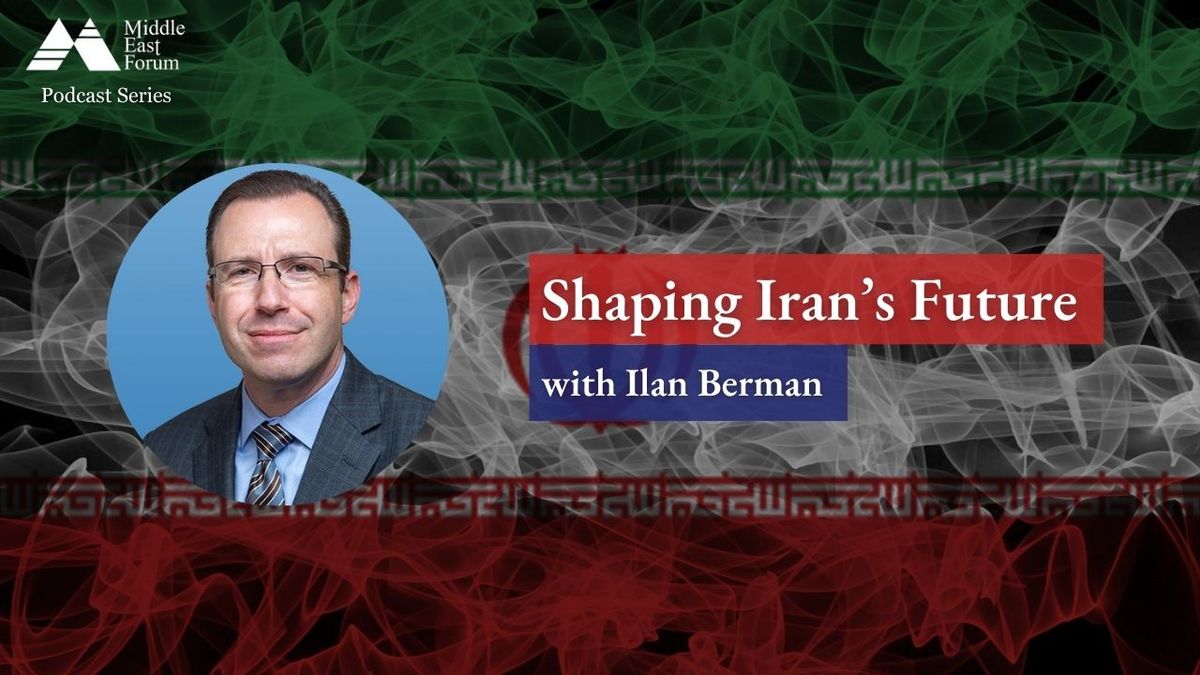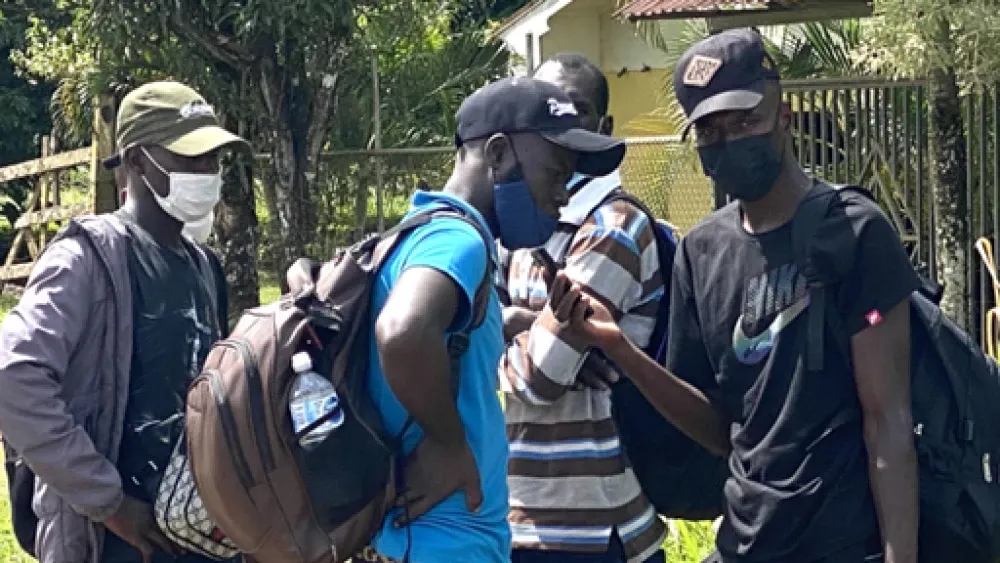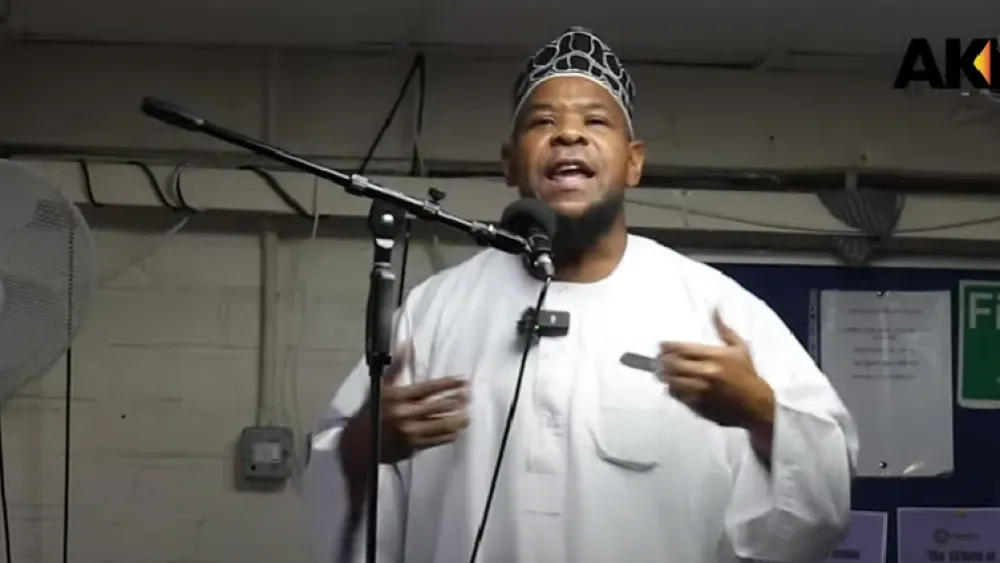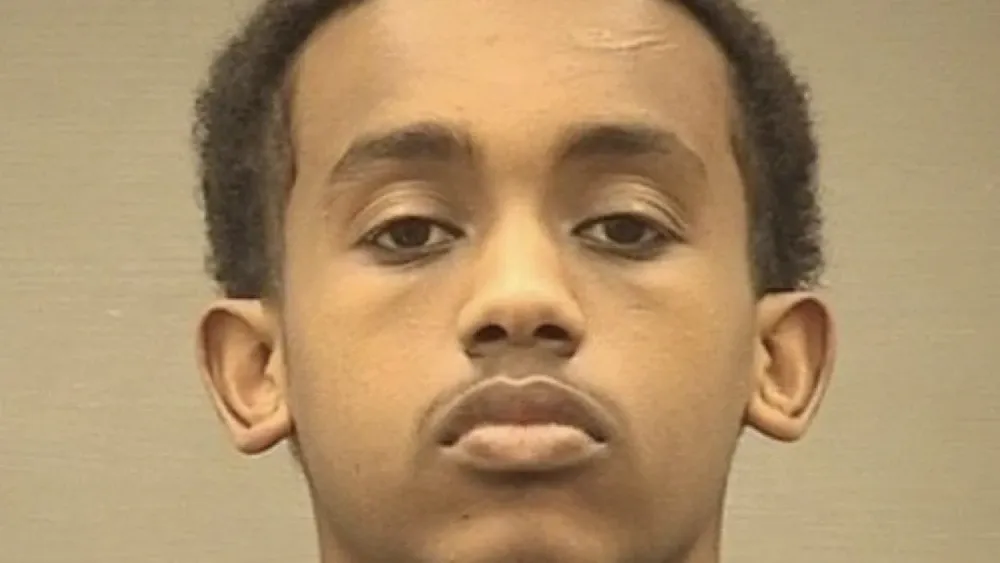| ||
 | ||
| Homeland Under Threat: Border Security and Radical Islamist Ideologies By Ahnaf Kalam ● Jan 13, 2025 Smart Brevity® count: 6.5 mins...1726 words This edition dives into a three-part series by Todd Bensman which examines the first border-crossing terrorist attack in Chicago, exposing critical national security vulnerabilities, followed by a deep dive into the radicalized life of the attacker and the policy failures that allowed him to operate undetected. Next, we explore how the U.S. can mitigate future risks through enhanced border controls and international cooperation. Shifting focus, we examine the concerning arrival of extremist preacher Sheikh Abu Usamah At-Thahabi in Florida and its potential to inflame divisions. Finally, we tackle the ideological drivers of recent terror attacks and the systemic failures in vetting foreign nationals, urging comprehensive reforms to bolster security and counter extremism. | ||
ICYMI: “Shaping Iran’s Future” with Ilan BermanIran’s political dynamics are shifting rapidly as a range of forces, including economic, religious, and demographic ones, drive a growing rift between the people and their 46-year-old regime. While the U.S. government has never sought the overthrow of the Islamic Republic of Iran, this opportunity raises urgent questions. Should Washington now seek to overthrow the mullahs? How should it approach Iranian opposition groups? To what extent should it coordinate with Israel and other regional powers? Ilan Berman is senior vice president of the American Foreign Policy Council with a focus on the Middle East, Central Asia, and Russia. He has consulted for the Central Intelligence Agency and the departments of State and Defense. The editor of six books, he has written for the Middle East Quarterly as well as Foreign Affairs, the New York Times, Wall Street Journal, and Washington Post. He holds a B.A. from Brandeis University, an M.A. from American University, and a J.D. from the Washington College of Law. | ||
First Blood: Anatomy of Border-Crosser’s Chicago Terror Attack[Part 1 of 3]: The October 26 attack in Chicago marks a significant moment in U.S. national security, with the first accused Islamic terrorist crossing the southern border to commit violence. Why it matters: The incident underscores the pressing need for enhanced border security and intelligence measures to prevent similar threats.
Details of the attack: On the Jewish Sabbath, a Mauritanian national shot a man walking to synagogue in Chicago's West Rogers Park.
Political implications: The attack has stirred political debate, especially in light of Donald Trump’s plans to intensify deportations.
Next steps: Authorities emphasize the need for robust intelligence and law enforcement collaboration to mitigate future threats.
To read the full article, click here. | ||
Mystery Terrorist: The Unknown Life and Violent Times of Illegal Border-Crosser Sidi Mohammed Abdallahi[Part 2 of 3]: The life of Sidi Mohammed Abdallahi, an illegal border-crosser turned terrorist, raises significant security concerns in the U.S. Missed warning signs: Abdallahi's unchecked journey from Mexico to Chicago exposes critical gaps in border security and investigative transparency.
Community connections: Abdallahi lived among fellow Mauritanians in Chicago, suggesting a network that authorities failed to scrutinize.
The gun mystery: How Abdallahi obtained a firearm in gun-regulated Chicago remains unanswered.
Call for transparency: The FBI and local agencies' silence on Abdallahi's case underscores the need for greater transparency and vigilance.
To read the full article, click here. | ||
The Remedies: How to Lower the Risk of New Terror Strikes by Border-Crossing Islamist Extremists[Part 3 or 3]: The second Trump administration seeks to tackle the threat of Islamist extremists crossing U.S. borders, with millions already inside. Reviving SIA initiatives: The administration proposes resurrecting Obama-era initiatives for Special Interest Aliens (SIAs), focusing on enhanced security vetting and joint action groups.
Strengthening border controls: Enhanced in-person vetting and detention protocols at land borders are recommended to ensure thorough checks of SIAs.
Internal security measures: ICE task forces will re-evaluate SIAs released under previous policies, conducting overdue security screenings.
International cooperation: The U.S. plans to work with Latin American countries to close migration routes and repatriate SIAs, reducing risks of unauthorized entry.
Managing these risks effectively requires reducing overall migration flows to make detection efforts more manageable. The focus is on creating smaller, more manageable "haystacks" to find potential "needles." To read the full article, click here. | ||
Good Riddance for Britain, but Bad News for Florida: The Radical Teachings of Sheikh Abu Usamah At-ThahabiSheikh Abu Usamah At-Thahabi, known for his extremist sermons in the U.K., has assumed a new position in Florida, raising significant concerns. Background: At-Thahabi, infamous for his hate-filled rhetoric, previously led Green Lane Masjid in Birmingham. His sermons advocated violence and division, targeting various communities.
Controversial teachings: He continues to preach inflammatory messages, now under the protection of U.S. free speech laws.
Community impact: At-Thahabi's presence poses risks of fostering division and radicalization within Florida.
Call to action: Florida's law enforcement and community leaders must monitor At-Thahabi's activities closely.
To read the full article, click here. | ||
Hating the U.S. and Israel Comes with Costs; Ask Caleb GannonCaleb Gannon's recent arraignment highlights the destructive influence of anti-Western propaganda. Incident overview: Gannon, 32, was arraigned after assaulting a pro-Israel activist in Newton, Massachusetts.
Ideological captivity: Gannon's actions stem from anti-American and anti-Israel ideologies that have entrapped many.
Public reaction: Despite some support from far-left groups, the incident underscores the dangers of unchecked radical rhetoric.
Call for awareness: The public must remain vigilant against ideologies that promote violence and division, recognizing their broader societal impacts.
To read the full article, click here. | ||
The New Orleans Terror Attack: Why It’s Not So ‘Senseless’ After AllThe vehicular terror attacks in New Orleans and Germany reveal a chilling strategy rooted in extremist ideology. ISIS directive: In January 2024, ISIS called for random violence in the West, urging attacks on civilians regardless of military status.
Target selection: The attacks in New Orleans and Germany align with ISIS's message, focusing on high-profile, crowded areas to maximize impact.
Media narrative: Official responses often cite mental health issues as motives, overlooking the explicit ideological directives underpinning these acts.
Call to action: Authorities must address the ideological roots of such violence, enhancing community awareness and resilience against extremist propaganda.
To read the full article, click here. | ||
Arrest of Egyptian Student for Mass Casualty Plot Marks Another Failure for National Security VettingThe arrest of Egyptian student Abdullah Hassan for plotting a bombing highlights critical lapses in national security vetting. Vetting oversight: Hassan entered the U.S. on a visa in 2022, despite evident extremist views on social media.
Plot details: Hassan allegedly planned a mass-casualty attack on the Israeli consulate in NYC, recruiting an undercover FBI agent to execute the plan.
Call for reform: The incident adds to a growing database of vetting failures, urging a reevaluation of current immigration and security protocols.
Community awareness: The case highlights the need for increased public vigilance and collaboration with law enforcement to identify potential threats early.
To read the full article, click here. | ||
Why Islamists Have Always Preferred BlondesThe portrayal of white women as inherently promiscuous continues to influence some Islamist ideologies, rooted in historical narratives. Historical context: Muslim "grooming gangs" in the UK echo age-old views from Islam's early conquests, where fair-haired women were seen as symbols of desire and sin.
Cultural misconceptions: White women have been historically depicted as "femme fatales," provoking lust and justifying exploitation.
Modern implications: Today, these views still influence some Muslim communities, with instances of sexual violence and exploitation in Europe reflecting deep-seated biases.
Call to action: Addressing these stereotypes requires cultural understanding and proactive measures to protect vulnerable communities.
To read the full article, click here. | ||
| This edition of the MEF Dispatch underscores the pressing need for vigilance and proactive measures to address emerging security challenges, from border vulnerabilities to the spread of extremist ideologies. Whether the threat comes from foreign jihadist terrorists or from the spread of radical Islamist and anti-Western ideology domestically, staying informed is the first step in securing a safer future. | ||
| Was this edition useful? Your responses are anonymous | ||
| Powered by | ||
| ||











